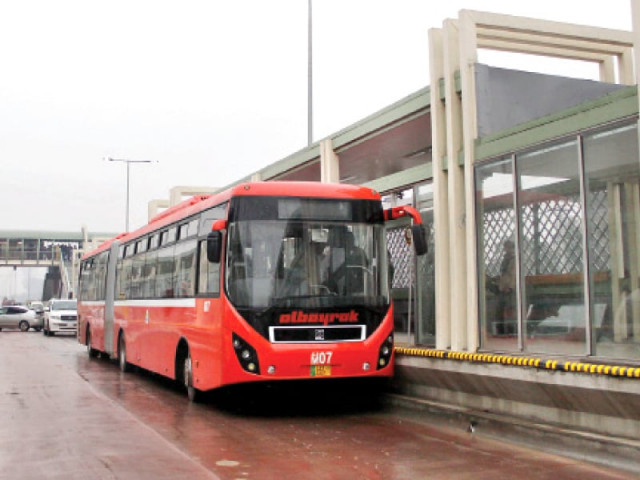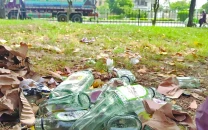The ‘surface subway’ that changes cities
Pakistan has been slow to catch on though, despite global successes.

Lahore’s BRT is the country’s first and was pushed through by Chief Minister Shahbaz Sharif amid great controversies. PHOTO: FILE
Lahore is really a “changed city” after the bus rapid transit system was introduced, gushed the general manager for operations of the Lahore BRT, Muhammad Ozair Shah. “Come and see Lahore, it’s a different Lahore now.”
The system he was talking about on the second day of South Asian Cities Conference here Saturday has caught like wildfire with planners. BRT, first seen in Brazil in 1974, refers to dedicated bus lines in the centre of a road, a system which not only carries more passengers quickly but is considered much more sustainable than private cars.
Pakistan has been slow to catch on though, despite global successes. Lahore’s BRT is the country’s first and was pushed through by Chief Minister Shahbaz Sharif amid great controversies.
“Those 11 months were tough for Lahoris because of the dust and traffic diversions, but it was for their benefit,” Shah said. Today Lahore’s BRT moves 140,000 passengers who used to be transported by 20,000 vehicles.
Thus, the traffic congestion has dropped on Ferozepur road where the BRT operates.
Researcher Dr Muhammad Imran talked about Auckland’s experience with BRT. The city of 1.4 million in one of the most richest parts of New Zealand where 87 per cent of people used to travel in the own cars. BRT has cut down a 45-minute distance in cars to 24 minutes which is why people are choosing it over private vehicles.
“In Auckland, if you want to meet the CEO of some company you don’t need to search for him (or her) because they are likely to be sitting in the seat next to you in the BRT bus,” he said. BRT has the added advantage of stations where you can park your car, bicycle or motorcycle after arriving from an arterial road.
Ali Asghar of Intelligent Transport System and a consultant at the Urban Unit spoke as did Mahmood Akhtar Cheema, the country representative for the International Union for the Conservation of Nature, and Muhammad Zubair Asghar Qureshi, the executive director of Urban Policy Unit.
Published in The Express Tribune, January 12th, 2014.



















COMMENTS
Comments are moderated and generally will be posted if they are on-topic and not abusive.
For more information, please see our Comments FAQ